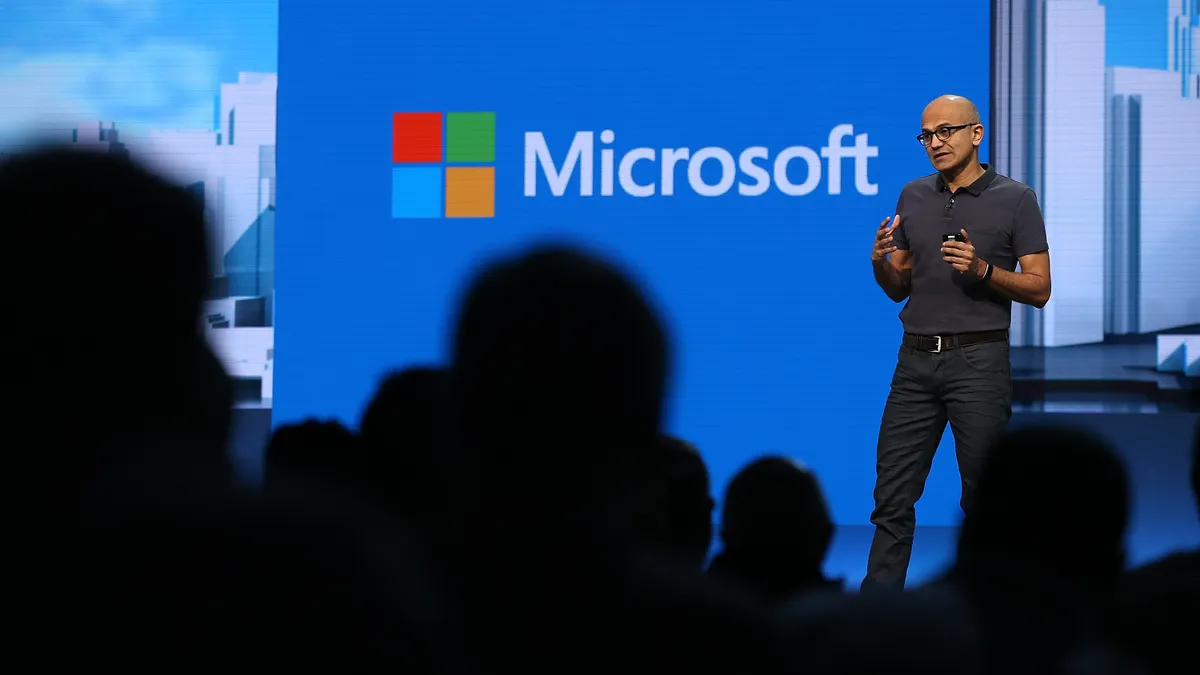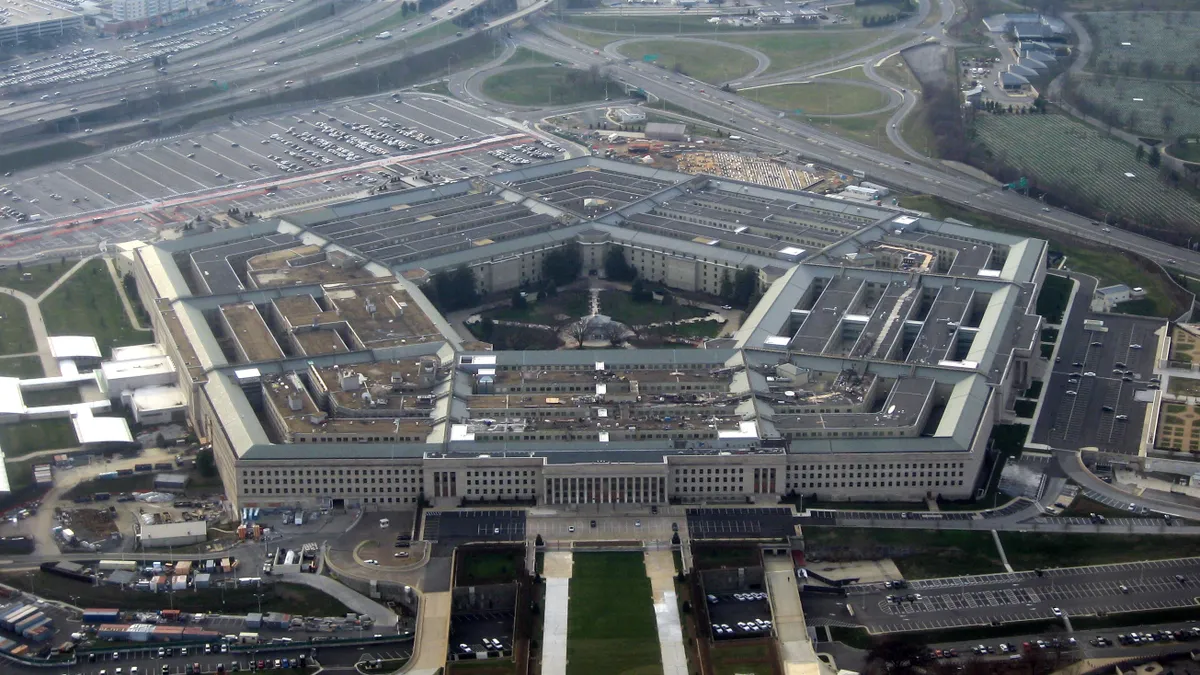Brief:
- The Department of Defense canceled the embattled $10 billion cloud computing contract, in favor of a multicloud procurement plan to better meet its needs, the agency announced Tuesday.
- The decision is a blow to Microsoft, which won the Joint Enterprise Defense Infrastructure (JEDI) cloud contract in 2019. But protests and litigation over the fairness of the award process stalled work on the cloud environment. Gaps in the Pentagon's enterprisewide cloud services remain, the agency said.
- The Defense Department's new multicloud initiative, a multi-vendor contract called the Joint Warfighter Cloud Capability (JWCC), will seek proposals from limited sources, namely Amazon Web Services (AWS) and Microsoft. The agency did not provide further detail regarding the award amount or timeframe for the contract.
Insight:
The Pentagon decision Tuesday is a culmination of a long, drawn out cloud contract award, featuring pushback and litigation at every turn. "Due to evolving requirements, increased cloud conversancy and industry advances, the JEDI cloud contract no longer meets its needs," the agency said.
The Pentagon's cloud needs have changed and cloud service provider technology has matured, said John Sherman, acting DoD CIO, in the announcement. Changing user requirements leveraging multiple cloud environments and the evolution of the agency's cloud ecosystem contributed to the decision, according to Sherman.
For Microsoft, it's a loss of a major contract. For AWS, it's an opportunity to bid again. And for Oracle, there's still time to hear back from the Supreme Court.
In effect, the resulting contract is a consolation for each vendor, which stand alone in having the capabilities to meet the Pentagon's needs. The agency will, however, work with industry to determine whether another U.S.-based CSP has the scale required to participate in the bid process, according to the announcement.
Amazon holds 40.8% of the IaaS public cloud market share, ahead of Microsoft, which maintains 19.7% of the market, according to Gartner analysis.
AWS and Microsoft remain the dominant cloud providers and already boast a number of contracts with the federal government. The Defense Department uses Microsoft 365 for more than 3 million members of its workforce and is working with the U.S. Air Force on scale IT modernization. AWS federal customers include the Department of Veterans Affairs and the Centers for Medicare and Medicaid Services, among others.
The Pentagon awarded the JEDI cloud contract to Microsoft in October 2019, but the agency's discussion about the $10 billion cloud contract began in 2017 ahead of a draft solicitation in March 2018. AWS, another finalist for the contract, protested the award and called for a new reevaluation process and award decision.
The Department of Defense's Inspector General, in a thorough, 313-page review of the contract, found a number of ethical violations and flaws throughout the bid process. Ultimately, the watchdog said it was fair to award the contract to a single source. The Pentagon reaffirmed the JEDI contract award last September, but protests from AWS continued.
In that time, with work on the contract delayed, cloud needs have changed. Companies are weighing the merits of hybrid cloud installations and embracing multicloud, with different vendors depending on the workload.
Cloud strategies evolve in real-time, as needs ebb and flow. And given the scale of deployments, companies are taking an iterative approach to adoption, one that embraces quick wins rather than waiting for large-scale transformation. The Pentagon's decision to rethink its cloud contract embraces this methodology, allowing the organization to nimbly move with multiple cloud service providers.


















